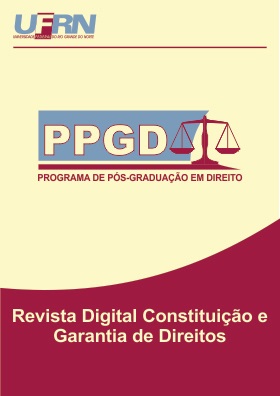SLAVE WORK AND EXPROPRIATION:
In Defense of Immediate Applicability of the Rule Provided for in Article 243 of the Brazilian Constitution
DOI:
https://doi.org/10.21680/1982-310X.2019v12n2ID19210Abstract
This article is dedicated to the study of the rule of article 243 of the Constitution of the Republic, focusing on the question of the effectiveness and applicability of the referred standard, which, from CE n. 81/2014, established the penalty of expropriation of urban and rural properties that are used for the practice of slave labor. The problem is whether the rule at issue can even be classified as of limited effectiveness, as some politicians, judges and jurists propose. As will be seen throughout the text, this author disagrees with this view and argues that the legal norm is fully effective and self-enforcing, as this is the fullest interpretation and best aligned with the international commitments made by Brazil regarding to combat contemporary slave labor. To support the hypothesis, this author used Ronald Dworkin's constructive interpretation and conception of law as integrity, in order to demonstrate that international treaties and other decisions handed down by the Brazilian Judiciary over the last years form a sequence consistent with acts requiring the country to adopt effective measures to combat all forms of contemporary slavery, hence the reason why the rule of article 243 of CR / 88 cannot be classified as of limited effectiveness.
Downloads
Downloads
Published
How to Cite
Issue
Section
License
Autores mantêm os direitos autorais pelo seu artigo. Entretanto, repassam direitos de primeira publicação à revista. Em contrapartida, a revista pode transferir os direitos autorais, permitindo uso do artigo para fins não- comerciais, incluindo direito de enviar o trabalho para outras bases de dados ou meios de publicação.





